
Find Help
More Items From Ergsy search
-

Is there a vaccine for Lyme disease?
Relevance: 100%
-

Lyme disease: What is it?
Relevance: 76%
-

What is Lyme Disease?
Relevance: 75%
-

Can Lyme disease be treated?
Relevance: 72%
-
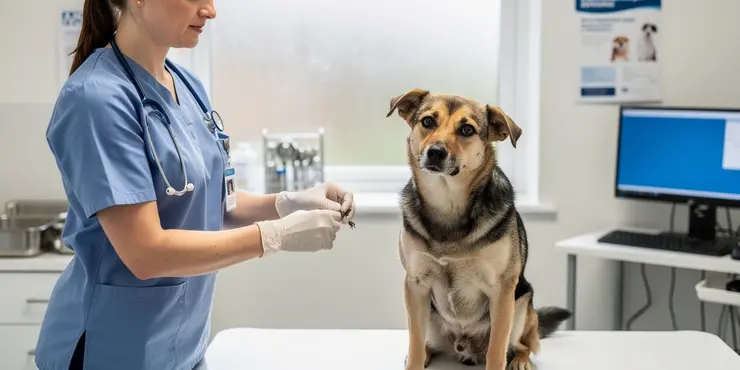
Can pets get Lyme disease?
Relevance: 70%
-

Is Lyme disease contagious between humans?
Relevance: 70%
-
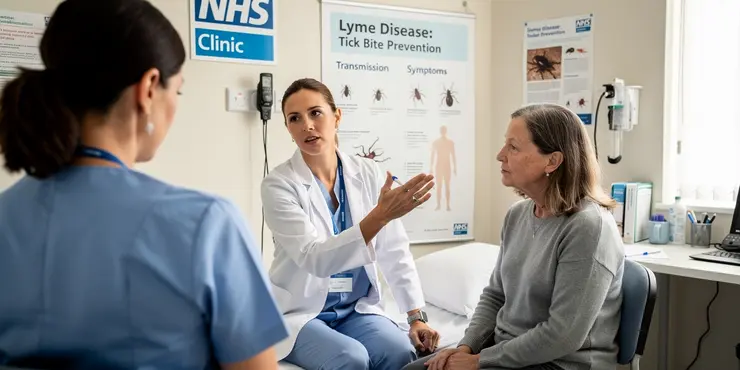
How is Lyme disease transmitted?
Relevance: 69%
-

How do you prevent Lyme disease?
Relevance: 68%
-

What are common symptoms of Lyme disease?
Relevance: 66%
-
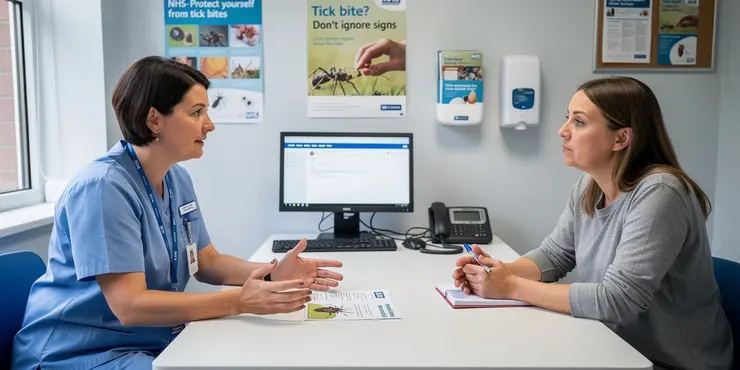
Can you get Lyme disease more than once?
Relevance: 66%
-

What is the first sign of Lyme disease?
Relevance: 65%
-

Where is Lyme disease most commonly found?
Relevance: 64%
-

What happens if Lyme disease is left untreated?
Relevance: 64%
-

What tests are available for diagnosing Lyme disease?
Relevance: 64%
-
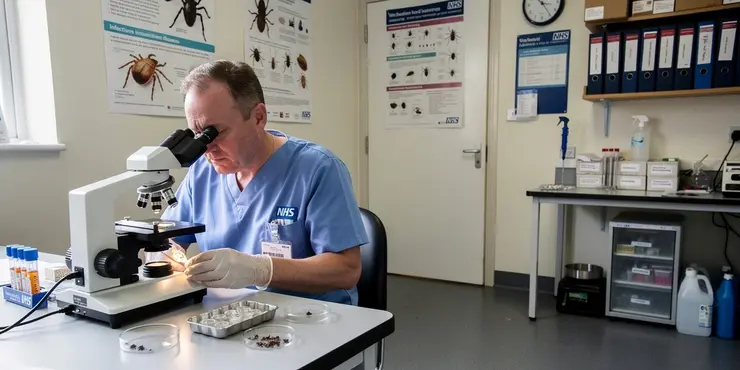
What kind of ticks carry Lyme disease?
Relevance: 63%
-

How effective are antibiotics in treating Lyme disease?
Relevance: 63%
-

What is post-treatment Lyme disease syndrome (PTLDS)?
Relevance: 58%
-

Can vaccines cause the diseases they protect against?
Relevance: 46%
-

Are any vaccines available in the UK for mosquito-borne diseases?
Relevance: 46%
-

Can Lyme disease cause long-term health problems?
Relevance: 43%
-

What types of antibiotics are typically used to treat Lyme disease?
Relevance: 42%
-

How long does a tick need to be attached to transmit Lyme disease?
Relevance: 40%
-

What is a vaccine?
Relevance: 39%
-
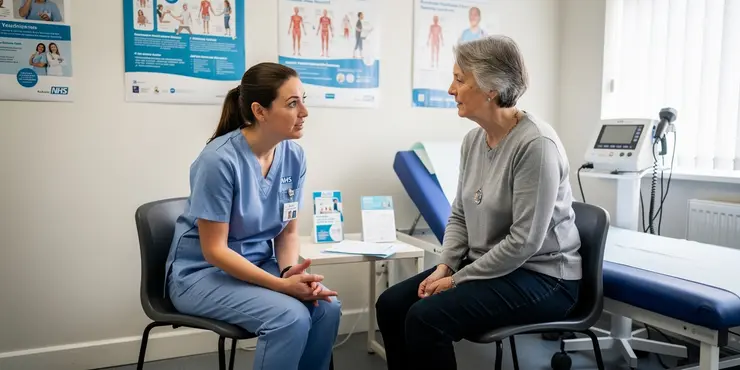
Are vaccines safe?
Relevance: 39%
-
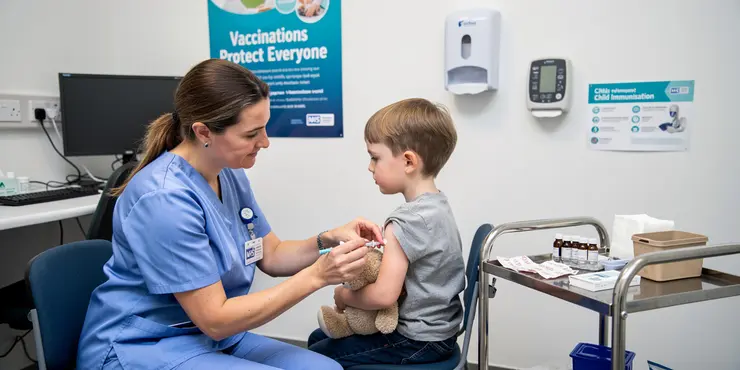
Why are vaccines important?
Relevance: 38%
-
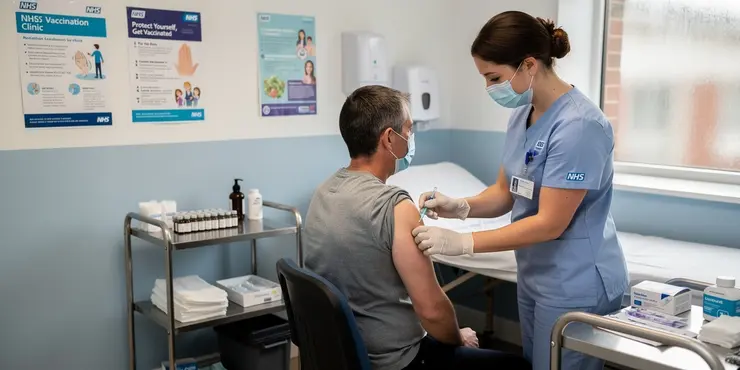
How do vaccines work?
Relevance: 38%
-

What is a live-attenuated vaccine?
Relevance: 37%
-

What is a subunit vaccine?
Relevance: 37%
-

Children's Vaccination Schedule
Relevance: 36%
-

What are vaccines and how do they work?
Relevance: 36%
-

What are the different types of vaccines?
Relevance: 35%
-

How effective is the MMR vaccine?
Relevance: 35%
-

Are infants recommended to receive the meningococcal vaccine?
Relevance: 35%
-

Why are vaccination rates declining in the UK?
Relevance: 35%
-

Should I get the chickenpox vaccine?
Relevance: 34%
-

Are vaccines linked to autism?
Relevance: 34%
-

What is the MMR vaccine?
Relevance: 34%
-

Can everyone receive vaccines?
Relevance: 34%
-

Is there a different recommendation for the MenACWY and MenB vaccines?
Relevance: 34%
-

Is there a vaccine for gonorrhoea?
Relevance: 34%
Introduction to Lyme Disease
Lyme disease is a tick-borne illness caused by the bacterium Borrelia burgdorferi. It is primarily transmitted to humans through the bite of infected black-legged ticks, commonly known as deer ticks. The disease can lead to a variety of symptoms, including fever, headache, fatigue, and a characteristic skin rash called erythema migrans. If untreated, infection can spread to joints, the heart, and the nervous system.
Current Vaccines for Lyme Disease
As of now, there is no publicly available vaccine for Lyme disease for humans. In the past, a vaccine called LYMErix was available in the United States, but it was withdrawn from the market in 2002 due to low demand and controversy surrounding side effects. The lack of a vaccine has led researchers to pursue alternatives and develop new candidates.
Development of New Vaccines
Efforts are underway to create a new Lyme disease vaccine. Companies and researchers are working on developing vaccines that target multiple strains of the Lyme-causing bacteria. Valneva, a biotechnology company, is one of the leaders in this effort with their vaccine candidate VLA15. This vaccine is currently in clinical trials and aims to provide broad protection against most strains of Lyme disease prevalent in Europe and North America.
Challenges in Vaccination
The development of a Lyme disease vaccine faces several challenges. The complex nature of Borrelia bacteria and its ability to evade the immune system makes creating an effective vaccine difficult. Additionally, public perception and awareness of Lyme disease, along with concerns over vaccine safety, play significant roles in the development and eventual uptake of a vaccine.
Preventative Measures
Until a vaccine is available, preventive measures remain the primary defense against Lyme disease. People are advised to take precautions when venturing into wooded or grassy areas, such as using tick repellents, wearing long sleeves and trousers, and checking for ticks on the body after spending time outdoors. Pets should also be checked regularly as they can carry ticks into homes.
Conclusion
In summary, while there is no current vaccine for Lyme disease available in the UK or globally, significant progress is being made in developing new vaccines. The continued research and clinical trials hold promise for future prevention. Until then, awareness and prevention remain crucial in managing and reducing the risk of Lyme disease.
Introduction to Lyme Disease
Lyme disease is a sickness you can get from a tiny bug called a tick. Ticks can bite you and pass on germs from an insect called Borrelia burgdorferi. People usually call these ticks "deer ticks." If a tick bites you, you might get a fever, headache, feel really tired, and see a special rash on your skin. This rash is called erythema migrans. If you don't treat it, Lyme disease can harm your joints, heart, and nervous system.
Current Vaccines for Lyme Disease
Right now, there is no vaccine you can get to stop Lyme disease in people. Before, there was a vaccine called LYMErix in the USA, but it was taken away in 2002. Not enough people were using it, and some were worried about its safety. Because there is no vaccine, scientists are working hard to make new ones.
Development of New Vaccines
Scientists are trying to make a new vaccine for Lyme disease. They want the vaccine to work against many types of Lyme germs. A company called Valneva is working on this with their vaccine named VLA15. This vaccine is being tested now and hopes to protect people in Europe and North America from Lyme disease.
Challenges in Vaccination
Making a Lyme disease vaccine is hard. The germs that cause Lyme disease are tricky and can hide from the body's defense system. Also, people need to know more about Lyme disease and feel safe about using a vaccine. These things make it tough to create and use a new vaccine.
Preventative Measures
Until there is a vaccine, the best way to avoid Lyme disease is by being careful. When you go to places with a lot of trees or grass, use tick spray, wear long clothes, and check your skin for ticks after. Make sure to check your pets too, because they can bring ticks home.
Conclusion
In short, there isn't a Lyme disease vaccine for people yet, but scientists are making progress. They are working on new vaccines that might help in the future. Until then, knowing how to prevent Lyme disease is important to stay safe.
Frequently Asked Questions
Is there a vaccine for Lyme disease available for humans?
As of now, there is no commercially available vaccine for Lyme disease for humans.
Has there ever been a Lyme disease vaccine for humans?
Yes, there was a vaccine called LYMErix that was available in the late 1990s but it was withdrawn from the market due to low demand and controversy over side effects.
Why was the LYMErix vaccine discontinued?
LYMErix was discontinued due to low market demand, concerns about possible side effects, and some legal challenges.
Are there any new Lyme disease vaccines being developed?
Yes, there are several Lyme disease vaccines currently in development and some are in clinical trials.
Can pets be vaccinated against Lyme disease?
Yes, there are vaccines available for dogs to protect against Lyme disease.
What is the status of current Lyme disease vaccine research?
Research is ongoing, with several candidates in various stages of clinical trials to determine safety and efficacy.
How effective was the LYMErix vaccine when it was available?
The LYMErix vaccine was shown to be around 76% effective after a full course of immunization.
Why is it challenging to develop a Lyme disease vaccine for humans?
Challenges include the complexity of the Borrelia bacterium, the varied immunogenic response in humans, and the need for broad protection against multiple strains.
What can people do to prevent Lyme disease without a vaccine?
Preventative measures include avoiding tick-infested areas, using tick repellents, wearing protective clothing, and conducting tick checks after being outdoors.
Is there a Lyme disease vaccine for horses?
Currently, there is no Lyme disease vaccine specifically approved for horses.
Could the LYMErix vaccine be brought back?
While theoretically possible, it would require addressing the initial concerns and regulatory hurdles, and market interest would need to be reassessed.
What role do clinical trials play in Lyme disease vaccine development?
Clinical trials are essential for testing the safety, immunogenicity, and efficacy of potential vaccines before they can be approved for public use.
How does the development of a Lyme disease vaccine differ from other vaccines?
It involves understanding the complex life cycle of the Borrelia bacterium and how it interacts with different hosts, which adds complexity to vaccine development.
Has any new Lyme disease vaccine candidate shown promise in trials?
Some vaccine candidates have shown promise in early-stage trials, but more research is needed to confirm their efficacy and safety in larger populations.
Could mRNA technology be used to develop a Lyme disease vaccine?
mRNA technology holds potential for developing a Lyme disease vaccine, as it allows for a targeted approach to eliciting an immune response.
What are the major hurdles facing Lyme disease vaccine development?
Major hurdles include scientific challenges related to Borrelia sp. diversity, regulatory hurdles, public perception, and establishing market demand.
Are there any geographical differences in Lyme disease vaccine development?
Vaccine development must consider the different Borrelia species prevalent in various geographical regions that may cause Lyme disease.
Is there an international effort to develop a Lyme disease vaccine?
Yes, there is international cooperation in research efforts, although regulatory and market considerations may differ by country.
How long could it take for a new Lyme disease vaccine to become available?
It can take several years for a vaccine to go from development to approval, depending on the results of clinical trials and regulatory review.
How does the Lyme disease vaccine for dogs work?
The dog vaccine works by stimulating the immune system to produce antibodies that prevent the bacteria from causing Lyme disease if the dog is bitten by an infected tick.
Can people get a vaccine for Lyme disease?
Right now, there is no vaccine you can buy for Lyme disease for people.
Has there ever been a Lyme disease vaccine for people?
Yes, there was a vaccine for Lyme disease for people. Lyme disease is an illness you can get from a tick bite. A vaccine helps protect you from getting sick.
The vaccine for Lyme disease was available in the past, but it is not available anymore. Scientists are working to make a new one.
If you want to learn more or need help, you can ask a doctor. You can also use phones or computers to find information that is easy to understand.
Yes, there used to be a vaccine called LYMErix. People could get it in the late 1990s. But it was taken off the market because not many people wanted it, and some people were worried about bad side effects.
Why did they stop the LYMErix vaccine?
The LYMErix vaccine was stopped because some people worried it might not be safe.
Also, not enough people were getting the vaccine, so it was hard to keep making it.
If you need help understanding, you can ask an adult or use pictures and videos to learn more.
LYMErix is a medicine that was stopped. Not enough people wanted it. Some people were worried it might cause harm. There were also legal problems.
If reading is hard for you, you can use audiobooks or apps that read text out loud.
Are new Lyme disease vaccines being made?
Yes, scientists are working on making new vaccines for Lyme disease. A vaccine can help keep people safe from getting sick. If you want to know more, you can ask your doctor or read simple health guides. Online videos and picture books can also help you learn about Lyme disease and vaccines.
Yes, there are some vaccines for Lyme disease being worked on. Some are being tested right now.
Can pets get a shot to stop Lyme disease?
Yes, there are shots to help keep dogs safe from Lyme disease.
How is the research going for a Lyme disease vaccine?
Scientists are still working hard. They are testing new medicines to make sure they are safe and work well.
How well did the LYMErix vaccine work when people could use it?
The LYMErix vaccine was used to stop Lyme disease. Lyme disease is an illness you can get from tick bites. Ticks are tiny bugs.
The vaccine helped some people. It stopped Lyme disease in many cases. But it did not work for everyone.
To learn more about vaccines, you can:
- Ask a doctor or nurse.
- Read books from the library.
- Watch videos for kids about health.
The LYMErix vaccine works well and stops Lyme disease in 76 out of 100 people who get all their shots.
Why is it hard to make a Lyme disease vaccine for people?
There are some problems we need to solve. The Borrelia germ is very tricky. People’s bodies fight it in different ways. We also need to make sure we can protect against all the different types.
How can people stop getting Lyme disease without a vaccine?
Here are some tips to help you:
- Wear long sleeves and pants when you go outside.
- Stay on clear paths and avoid tall grass.
- Use bug spray to keep ticks away.
- Check your skin for ticks after being outside.
- Take a bath or shower after you go back inside.
These tips can help you stay safe from Lyme disease.
To stay safe from ticks, try these tips:
- Stay away from places where ticks live.
- Use sprays that keep ticks away.
- Wear clothes that cover your skin.
- Check yourself for ticks after being outside.
Can horses get a Lyme disease shot?
Right now, there is no shot for Lyme disease that is made just for horses.
Can we use the Lyme disease vaccine again?
It's possible, but there are a few things to think about first. We would need to solve some problems and follow important rules. We also need to check if people are still interested.
Why are clinical trials important for Lyme disease vaccines?
Clinical trials are tests to make sure a new vaccine is safe and works well. They help scientists and doctors learn if a Lyme disease vaccine is good for people.
If you want to learn more, you can:
- Ask your doctor questions.
- Read simple articles online.
- Watch videos about Lyme disease.
When doctors and scientists make new vaccines, they need to test them to make sure they are safe and work well. This testing is called a clinical trial. Vaccines must go through these tests before people can use them.
What is different about making a Lyme disease vaccine compared to other vaccines?
To make a vaccine, scientists need to learn how a tiny germ called Borrelia grows and behaves. This germ lives in animals and can make people sick. Understanding this makes creating a vaccine harder.
Is there a new Lyme disease vaccine that works well in tests?
Scientists are testing new vaccines for Lyme disease. They want to find out if any work well. These tests are called trials. A vaccine that works well is one that can stop people from getting sick.
Here are some ways you can understand new vaccine news:
- Look for simple news articles that explain test results.
- Watch videos that talk about the new vaccines.
- Ask a helper to read news with you and explain it.
This will help you know if there is a new vaccine for Lyme disease that might work well.
Some vaccines look like they might work from early tests. But scientists need to do more tests with more people to make sure the vaccines are safe and work well.
Can mRNA help make a Lyme disease vaccine?
Scientists are working on using mRNA technology. This is a new way to make vaccines. It could help make a vaccine for Lyme disease.
mRNA teaches our bodies to fight germs. It has already helped make other vaccines, like for COVID-19. Scientists think it might help make a Lyme disease vaccine, too.
To find more information, you can:
- Read simple articles online.
- Ask a doctor or a nurse.
- Watch videos made for kids.
If reading is hard, try:
- Listening to audiobooks.
- Using apps that read text aloud.
mRNA technology could help make a vaccine for Lyme disease. It helps the body fight the disease by teaching it to attack the germs.
You can use tools like: - Text-to-speech software to hear the words. - Highlighting pens to mark important points. - Ask someone to explain if you don't understand.
What are the big challenges in making a Lyme disease vaccine?
Here are some of the main challenges:
- Complex bacteria: The Lyme disease bacteria are tricky. They can change to hide from the immune system.
- Many strains: There are different types of Lyme disease bacteria. A vaccine needs to work for all of them.
- Safety concerns: People want to make sure the vaccine is safe for everyone.
- Public awareness: Some people don't know much about Lyme disease and why a vaccine is important.
To help understand more, here are some tips:
- Watch videos about Lyme disease and vaccines.
- Use apps that read text out loud.
- Talk with a doctor or healthcare professional for more information.
There are big problems scientists need to solve about Borrelia sp. diversity. There are also rules to follow, how people feel about it, and finding people who want to buy it.
Some tools that can help are using pictures, breaks, or reading with a partner.
Are there any differences in how Lyme disease vaccines are made in different parts of the world?
Some places might have different ways of making Lyme disease vaccines. These differences can depend on where people live and the type of Lyme disease in that area.
If you want to learn more about Lyme disease vaccines, you can use simple books or videos online. Talking to a doctor or a nurse can also help you understand better.
When making a vaccine for Lyme disease, scientists must think about the different types of Borrelia bacteria found in different places. These bacteria can make people sick with Lyme disease.
Are people around the world working on a Lyme disease vaccine?
Yes, countries work together on research, even if their rules and markets are different.
How long until there is a new Lyme disease vaccine?
It might take a few years for a new Lyme disease vaccine to be ready. Vaccines need to be tested to make sure they are safe and work well. This takes time.
If you have trouble understanding this, ask someone to help. You can also look at pictures or videos about vaccines. They can explain things better.
It can take a long time for a vaccine to be ready. It might take years. This is because it needs to be tested first to make sure it is safe and works well. Then, experts need to check everything carefully before it can be used.
To help understand this, you can:
- Use pictures to show how this works.
- Ask someone to explain it in simple words.
- Read one sentence at a time and think about it.
How does the Lyme disease vaccine for dogs work?
The Lyme vaccine helps keep dogs safe from Lyme disease. Lyme disease is caused by tiny bugs called bacteria that come from tick bites.
The vaccine teaches the dog's body to fight off these bacteria. It does this by showing a small, harmless part of the bacteria to the dog’s immune system. This way, the dog's body knows what to do if the real bacteria show up later.
Taking your dog to the vet for the vaccine and regular check-ups is important to keep them healthy.
If you find it hard to read on your own, you can ask someone to read with you or use audiobook services to help.
The dog vaccine helps keep dogs safe from Lyme disease. It tells the dog's body to make special cells called antibodies. These antibodies stop the sickness if a tick with Lyme disease bites the dog.
Useful Links
This website offers general information and is not a substitute for professional advice.
Always seek guidance from qualified professionals.
If you have any medical concerns or need urgent help, contact a healthcare professional or emergency services immediately.
Some of this content was generated with AI assistance. We’ve done our best to keep it accurate, helpful, and human-friendly.
- Ergsy carfully checks the information in the videos we provide here.
- Videos shown by Youtube after a video has completed, have NOT been reviewed by ERGSY.
- To view, click the arrow in centre of video.
- Most of the videos you find here will have subtitles and/or closed captions available.
- You may need to turn these on, and choose your preferred language.
- Go to the video you'd like to watch.
- If closed captions (CC) are available, settings will be visible on the bottom right of the video player.
- To turn on Captions, click settings .
- To turn off Captions, click settings again.
More Items From Ergsy search
-

Is there a vaccine for Lyme disease?
Relevance: 100%
-

Lyme disease: What is it?
Relevance: 76%
-

What is Lyme Disease?
Relevance: 75%
-

Can Lyme disease be treated?
Relevance: 72%
-

Can pets get Lyme disease?
Relevance: 70%
-

Is Lyme disease contagious between humans?
Relevance: 70%
-

How is Lyme disease transmitted?
Relevance: 69%
-

How do you prevent Lyme disease?
Relevance: 68%
-

What are common symptoms of Lyme disease?
Relevance: 66%
-

Can you get Lyme disease more than once?
Relevance: 66%
-

What is the first sign of Lyme disease?
Relevance: 65%
-

Where is Lyme disease most commonly found?
Relevance: 64%
-

What happens if Lyme disease is left untreated?
Relevance: 64%
-

What tests are available for diagnosing Lyme disease?
Relevance: 64%
-

What kind of ticks carry Lyme disease?
Relevance: 63%
-

How effective are antibiotics in treating Lyme disease?
Relevance: 63%
-

What is post-treatment Lyme disease syndrome (PTLDS)?
Relevance: 58%
-

Can vaccines cause the diseases they protect against?
Relevance: 46%
-

Are any vaccines available in the UK for mosquito-borne diseases?
Relevance: 46%
-

Can Lyme disease cause long-term health problems?
Relevance: 43%
-

What types of antibiotics are typically used to treat Lyme disease?
Relevance: 42%
-

How long does a tick need to be attached to transmit Lyme disease?
Relevance: 40%
-

What is a vaccine?
Relevance: 39%
-

Are vaccines safe?
Relevance: 39%
-

Why are vaccines important?
Relevance: 38%
-

How do vaccines work?
Relevance: 38%
-

What is a live-attenuated vaccine?
Relevance: 37%
-

What is a subunit vaccine?
Relevance: 37%
-

Children's Vaccination Schedule
Relevance: 36%
-

What are vaccines and how do they work?
Relevance: 36%
-

What are the different types of vaccines?
Relevance: 35%
-

How effective is the MMR vaccine?
Relevance: 35%
-

Are infants recommended to receive the meningococcal vaccine?
Relevance: 35%
-

Why are vaccination rates declining in the UK?
Relevance: 35%
-

Should I get the chickenpox vaccine?
Relevance: 34%
-

Are vaccines linked to autism?
Relevance: 34%
-

What is the MMR vaccine?
Relevance: 34%
-

Can everyone receive vaccines?
Relevance: 34%
-

Is there a different recommendation for the MenACWY and MenB vaccines?
Relevance: 34%
-

Is there a vaccine for gonorrhoea?
Relevance: 34%


